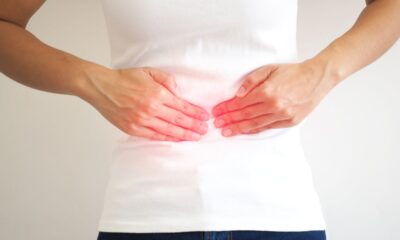Health
Vitamin D deficiency problems: fad or real problem?

It is known as vitamin D although it is not really such because, by vitamin we mean a vital organic component that must be included in one's diet and which one simply cannot do without.
In the case of vitamin D, on the other hand we are talking about a pre-hormone, an element synthesized by the sun's rays and by exposure to them by individuals, therefore under conditions of normal solar absorption it is not necessary to integrate it into the daily diet so that it is not deficient. Only a small percentage is guaranteed by adequate nutrition, the rest comes from skin synthesis.
It plays a role of crucial importance for human life by regulating the metabolic presence of calcium and phosphorus. It comes in two versions, vegetable D2 and D3, or produced from cholesterol. It is activated through enzymatic reactions of the liver and kidneys.
Contrary to what is generally thought, it should not be taken in DIY mode with over-the-counter products not expressly recommended by the doctor. It is not said that an individual is deficient in it. It must, in fact, be established by undergoing a simple blood test to verify its values. If low, then it can be integrated by taking more care of the diet and taking advantage of supplements that can be found on ellefarma.com and which, on average, are recommended to those categories considered to be weaker: the elderly, obese, dark-skinned people whose skin color absorbs less UV rays or afflicted with dermatological diseases, pregnant women.
The optimal values of vitamin D are between 30 and 100 ng/ml. If they exceed the maximum value – which is rather rare and which can derive from the disproportionate use of supplements – it means that there is an excess of production and there is a risk of intoxication.

Vitamin D: what happens if it is deficient in children
Vitamin D is essential for the proper maintenance of organic skeletal functions: elasticity, structure, bone strength.
Its possible deficiency can lead to serious and persistent problems, in adults and children. In the latter it can determine forms of rickets and, in adults, osteomalacia. Rickets is a dangerous condition because it affects children in the development stage, undermining their growth potentially compromised or altered by skeletal deformities, especially at the joint level. In the poorest countries, rickets is a dangerously widespread phenomenon.
In recent years, the medical-scientific interest in the importance of vitamin D has grown considerably and, consequently, also the studies on the matter. The first findings, still under evaluation, establish that vitamin D, in addition to influencing the health of the human skeleton, is involved in many aspects related to extra-skeletal functions, such as those of the central nervous system, cardiovascular, immune, cell growth .
There also seem to be correlations between its lack and some anxiety disorders. Low vitamin D and anxiety represent a combination that scholars have been dealing with since 2013 and which has taken into consideration a sample of people already suffering from anxiety and depression, determining that those with insufficient amounts of vitamin D may be more prone to certain diseases. This would confirm the importance of this vitamin also on mood and balance.
How vitamin D is produced
The main source of vitamin D production is not food, but UVB solar rays which, in a natural way, stimulate the formation of the molecule. Not only sun, but sun in certain time slots and seasons, for example at these latitudes you can expose yourself from March to November for at least 15 minutes 3 times a week. In the other months, one has to lend a hand to the body. Naturally, the effect that the vitamin has on the body varies greatly according to age, skin colour, health, use of sunscreen products, etc.
However, where sun exposure is limited, certain supplements and foods come to the rescue such as: salmon, mackerel, egg yolk, bran, tuna, trout, sole, snapper, cod liver oil, beef liver, butter.
Harm from supplements if vitamin D is not deficient
It is useless to face a problem that does not exist, so if, from a medical check, vitamin D is adequate, it must not be taken in other forms. In this case it does not serve for preventive purposes. An excessive presence of this molecule can cause health problems.
From a physiotherapy test carried out on a group of sportsmen to determine the degree of body balance, risk of falling, posture, rehabilitation gait, it was established that the volunteers with overestimated vitamin D values, evidenced by blood tests, found a certain weakness in the past in moving the knee joints.
In recent years, the Italian consumption of vitamin D has increased from 24 million to 208 million euros and this consumption, at least in part, seems unjustified with respect to real health reasons.
Riproduzione riservata © - WT











